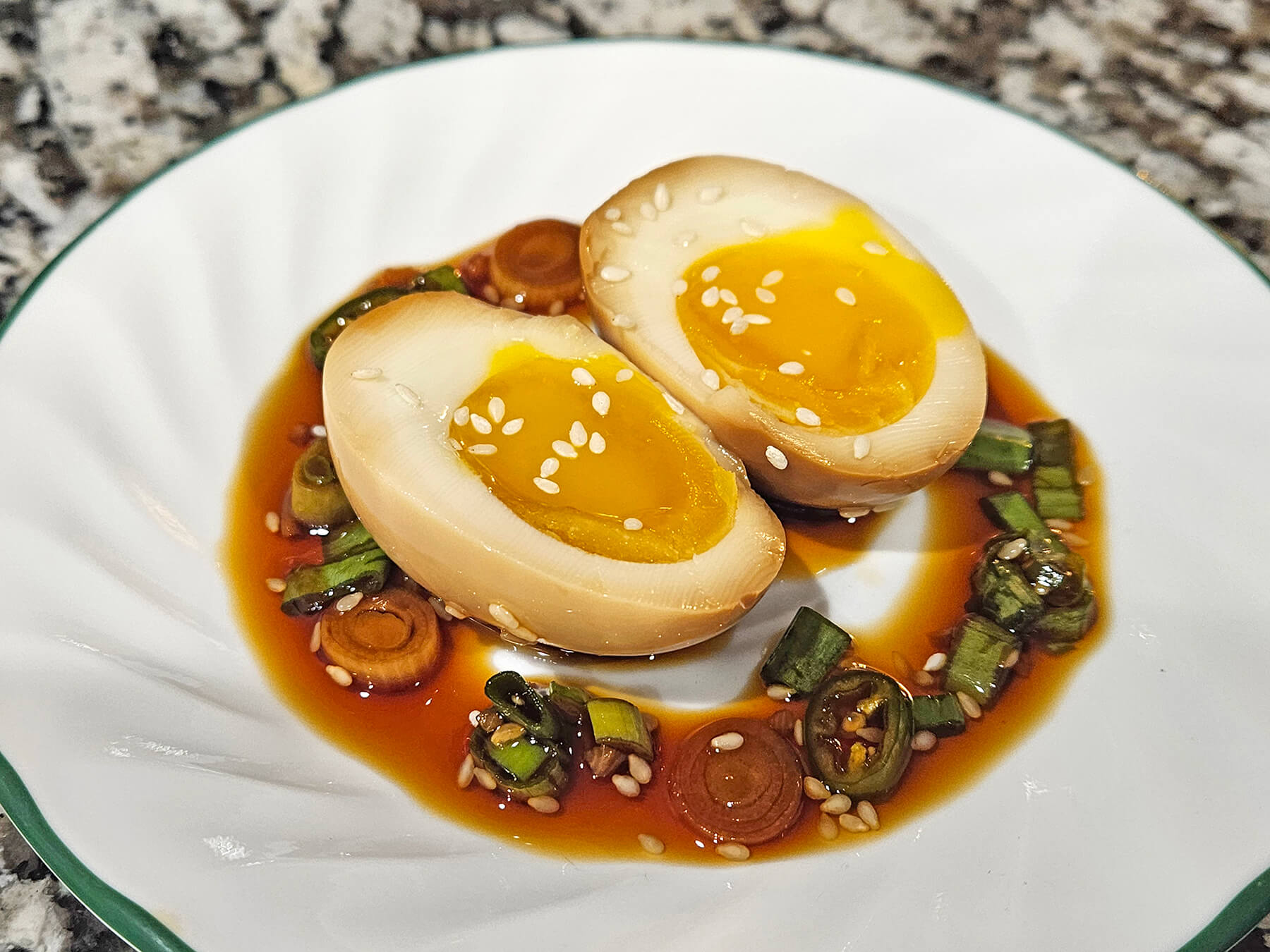Are you ready to take your snack game to the next level? If you haven’t tried soy sauce eggs yet, you’re in for a treat. This deliciously tangy twist on a classic snack is not only easy to make but also bursting with flavor. Imagine perfectly boiled eggs infused with rich soy sauce, creating an umami explosion in every bite. Whether you’re looking for a quick appetizer or a protein-packed addition to your meal prep, soy sauce eggs are the answer. Let’s dive into this delightful dish and explore what makes it so special!
The Origin and History of Soy Sauce Eggs
Soy sauce eggs have roots deeply embedded in Asian culinary traditions. This savory treat is believed to have originated in China, where preserving food was essential for survival.
The technique of marinating hard-boiled eggs in soy sauce emerged as a practical way to enhance flavor and extend shelf life. Over time, this simple dish gained popularity across Asian countries, each adding its unique twist.
In Japan, the concept evolved into “Ajitsuke Tamago,” often served with ramen. Meanwhile, Korean cuisine features similar versions known as “Gyeran Jang,” showcasing regional variations.
This humble snack has transcended borders and cultures, delighting taste buds worldwide while embodying centuries of tradition and innovation. The marriage of soy sauce and egg reflects the ingenuity found in everyday cooking practices throughout history.
Ingredients Needed for Making Soy Sauce Eggs
To whip up a batch of delectable soy sauce eggs, you’ll need just a handful of ingredients. The stars of the dish are, of course, the eggs. Choose large or extra-large ones for optimal flavor and texture.
Next on your list is soy sauce. Opt for a high-quality one—preferably dark soy sauce—for that rich umami taste.
For added depth, consider including mirin or rice vinegar to balance out the saltiness with a hint of sweetness.
You might also want some water to dilute the soy sauce mixture slightly; this will prevent it from overpowering the eggs.
Feel free to add optional garnishes like green onions or sesame seeds. These bring in an additional layer of flavor and visual appeal!
Step-by-Step Instructions for Making Soy Sauce Eggs
Start by boiling your eggs. Aim for a perfect soft-boiled texture—about six to seven minutes in simmering water should do the trick. Once done, plunge them into an ice bath to stop the cooking process.
While your eggs cool, prepare the soy sauce marinade. Mix equal parts soy sauce and water in a bowl. You can add a splash of rice vinegar or mirin for extra flavor.
Peel your cooled eggs gently, ensuring not to break the delicate whites. Place them carefully into the marinade, making sure they are fully submerged.
Let them soak for at least four hours in the refrigerator. For deeper flavor, consider marinating overnight if you have time.
When ready to serve, slice each egg in half and admire that beautiful yolk! Enjoy with rice or as a topping on ramen for added richness.
Tips and Tricks for Perfectly Cooked Soy Sauce Eggs
To achieve the perfect soy sauce eggs, start with fresh eggs. The quality of your eggs makes a noticeable difference in taste and texture.
When boiling, aim for medium heat. Bringing the water to a rolling boil might lead to overcooking. Instead, simmer gently for about 6-7 minutes for that ideal soft center.
After cooking, plunge them into ice water immediately. This helps stop the cooking process and ensures easy peeling later on.
For flavor infusion, allow the peeled eggs to soak in soy sauce overnight. If you’re short on time, even an hour can work wonders.
Consider experimenting with other ingredients like mirin or sake added to your marinade for a unique twist. A sprinkle of sesame oil before serving can elevate the dish further!
Keep an eye on marinating time; longer isn’t always better as it may overpower delicate egg flavors.
Variations and Additions to the Recipe
Soy Sauce Eggs can be tailored to suit your taste. One popular variation is adding a sprinkle of sesame seeds for an extra crunch and nutty flavor.
You can also experiment with spices like chili flakes or five-spice powder for a kick of heat and warmth. This adds depth and excitement to each bite.
For those who love umami, consider including sliced green onions or nori strips as garnishes. They enhance both the visual appeal and flavor profile.
If you’re feeling adventurous, try marinating the eggs in different liquids—like miso paste or rice vinegar—for unique twists that still highlight that beloved soy sauce base.
Serve these eggs atop sushi rice or noodles for a heartier dish. Each twist makes this classic snack even more enjoyable!
Health Benefits of Soy Sauce and Eggs in This Dish
Soy sauce eggs are not just a flavorful snack; they also offer several health benefits. Both soy sauce and eggs pack a nutritional punch.
Soy sauce is rich in antioxidants, which help combat oxidative stress in the body. It contains amino acids that promote muscle growth and repair, making it an excellent addition for those active in sports or fitness.
Eggs are known as nature’s multivitamin. They provide high-quality protein, essential vitamins like B12 and D, and minerals such as selenium. The yolk adds healthy fats that can support brain health.
Together, these ingredients create a satisfying dish that fuels your body while tantalizing your taste buds. Enjoying soy sauce eggs can be part of a balanced diet without sacrificing flavor or enjoyment.
Conclusion
Soy sauce eggs offer a unique blend of flavors that can elevate your snacking experience. The combination of perfectly cooked eggs soaked in savory soy sauce creates a dish that is both satisfying and versatile. Whether enjoyed on their own, as part of a rice bowl, or added to salads, these eggs are sure to delight.
The rich history behind soy sauce eggs connects cultures through the love for this delicious snack. With simple ingredients and easy preparation steps, anyone can recreate this dish at home. Plus, experimenting with variations allows you to discover new flavor profiles tailored to your taste.
Not only are soy sauce eggs tasty, but they also bring health benefits thanks to the nutritious ingredients involved. Eggs are packed with protein while soy sauce adds depth without excessive calories.
Give this delightful recipe a try and enjoy the burst of umami it brings into your kitchen!



